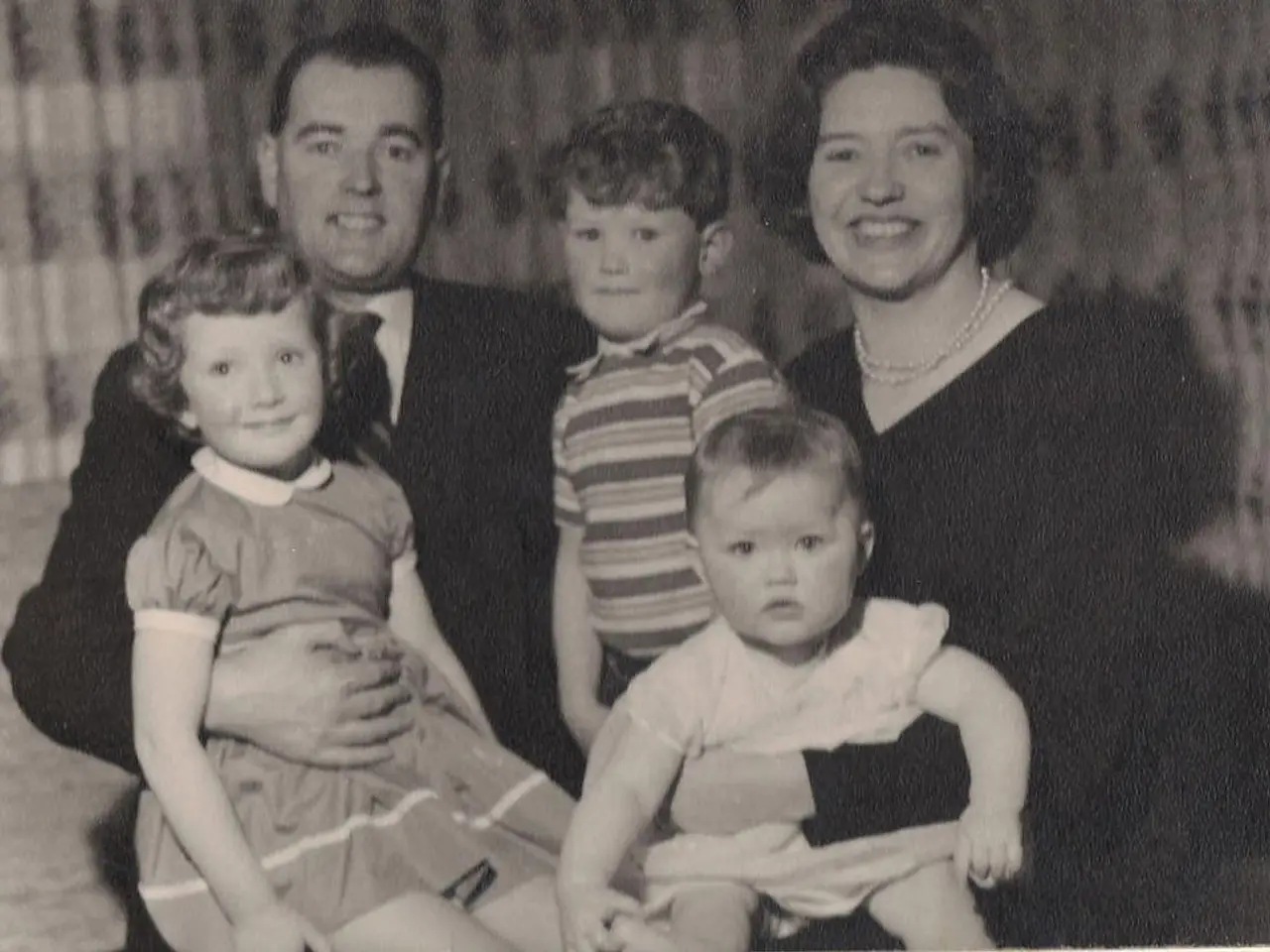Sibling disputes escalate to toxic levels in UAE, revealing bitter family feuds dividing households
In a community in Dubai, a case of unresolved sibling resentment between two sisters, both educated and employed, has come to light. This long-standing conflict, dating back to when one sister felt less valued at the age of six, has soured their relationship to the point of open hostility [1].
Deep-seated sibling resentment can have far-reaching consequences, shaping a person's personality and long-term relationships. It can lead to constant stress and anxiety, depression and sleep problems, difficulty trusting others, problems in marriages and friendships, and even physical symptoms like headaches and stomach issues [2].
To address and prevent such resentment from taking root and causing lasting harm, a combination of emotional healing and proactive communication strategies is essential.
Acknowledging and Naming the Truth
Acknowledging and naming the truth of emotional neglect or sibling resentment, without blame, is the first step towards healing. This brings clarity and self-awareness, which is foundational to healing [4].
Separating Past Hurts from Present Interactions
Recognizing when old wounds drive current emotional reactions and consciously choosing new, healthier responses is crucial. This involves separating past hurts from present interactions [4].
Setting Firm Boundaries
Setting firm boundaries with family members or siblings without over-explaining is another important step. This protects one’s emotional well-being and prevents further harm [4].
Seeking Therapy or Counseling
Seeking therapy or counseling can help individuals develop emotional regulation skills, learn to validate their emotions, and improve relational dynamics impaired by neglect or rivalry [1].
Encouraging Open Communication and Conflict Confrontation
Open communication and conflict confrontation, rather than avoidance, can help prevent sibling conflict from escalating into intense resentment and even hatred that deeply harms relationships [3].
Using Family Therapy or Mediation
When relevant, family therapy or mediation can be used to unpack childhood issues underlying sibling conflicts and establish clear roles, responsibilities, and communication protocols to reduce misunderstandings [2][3].
Emotionally neglected siblings often face struggles such as anxiety, depression, low self-esteem, and difficulty trusting others, which interfere with intimacy and relationship-building [1]. Addressing these root issues through professional support and personal boundary-setting can prevent resentment from distorting personality or perpetuating dysfunctional patterns in adult relationships.
However, it's important to focus on solving one issue at a time rather than rehashing the past. In some cases, the healthiest choice may be to step away from the conflict [5].
In extreme cases, threats of violence or harm are serious indicators of conflict within families. Such situations require immediate attention and professional intervention [6].
Public humiliation, such as embarrassing each other in front of family or friends, is another tactic used in family conflicts. Families should set strict rules, such as no verbal abuse and no involving children in conflicts [7].
In conclusion, healing requires a combination of self-awareness, emotional work, boundary management, and sometimes professional intervention to foster healthier sibling dynamics and personal growth [1][4]. It's crucial to prioritize personal well-being, whether that means setting boundaries or seeking professional help. Early intervention and open family communication are key to preventing sibling rivalry from festering unchecked and resulting in fractured relationships that extend well beyond childhood, affecting careers, marriages, and mental health.
- News articles about family dynamics often highlight the long-term impacts of sibling resentment on mental health, suggesting the importance of addressing and preventing such conflicts.
- A career in health-and-wellness or mental health could involve counseling or therapy, aimed at helping individuals cope with and heal from emotional neglect or sibling-related issues affecting their personal relationships.
- In the history of psychology, studies on family dynamics have consistently shown that unresolved sibling resentment can lead to a range of personal andrelationship difficulties, including anxiety, depression, and difficulty in forming relationships.
- Approaching relationships with a lifestyle centered on open communication, emotional intelligence, and healthy conflict resolution can help prevent the development of deep-seated sibling resentment that may impact one's health and wellness.
- In the realm of science, aspiring researchers might choose to focus on the implications of siblings relationships on mental health, exploring potential interventions and strategies to minimize the negative impact of sibling resentment.
- A focus on family-dynamics and relationships in a lifestyle magazine could involve features on the impact of sibling resentment on health, strategies for healing long-standing conflicts, and tips for creating healthier, more fulfilling relationships with siblings.




